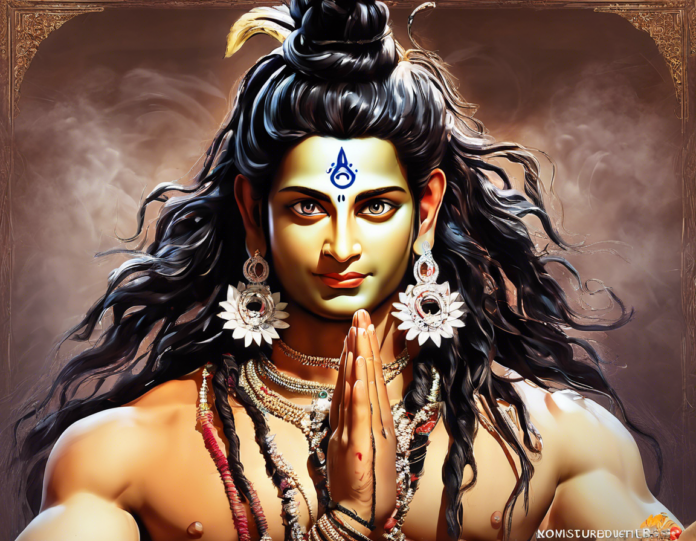Introduction
Maha Shivaratri, also known as Shiv Ratri or the Great Night of Shiva, is a Hindu festival celebrated annually in honor of Lord Shiva. The word “Maha Shivaratri” translates to “the Great Night of Shiva” and is observed on the 14th night of the dark half of the Hindu month of Phalguna. This auspicious night holds immense significance in Hindu mythology and is believed to be the day when Lord Shiva performed the cosmic dance Tandava. Devotees observe rigorous fasting, participate in prayers and rituals, and stay up all night to seek the blessings of Lord Shiva.
Date and Time for Shiv Ratri 2024
Shivaratri in 2024 will be observed on February 21st, which falls on a Wednesday. The date of Maha Shivaratri is determined according to the Hindu lunar calendar and varies each year. Devotees eagerly await this special occasion to express their devotion and seek the divine presence of Lord Shiva.
Significance of Shiv Ratri
Maha Shivaratri holds significant spiritual and religious importance for devotees of Lord Shiva. It is believed that observing fast and performing prayers on this night can cleanse the soul, remove past sins, and bestow blessings for a prosperous life. The cosmic significance of Maha Shivaratri is deeply rooted in Hindu mythology and folklore, making it one of the most revered festivals among Hindus.
Celebrations and Rituals
On the auspicious night of Shivaratri, devotees undertake various rituals to honor Lord Shiva and seek his blessings. Some of the common practices observed during Maha Shivaratri include:
1. Fasting:
Devotees observe a day-long fast on Maha Shivaratri as a mark of reverence and self-discipline. Fasting is believed to purify the body and mind, allowing devotees to connect with the divine energy of Lord Shiva.
2. Abhishekam:
Abhishekam, or ritual bathing, is an essential part of Shivaratri celebrations. Devotees offer milk, honey, water, and other sacred liquids on Shiva Lingam while chanting prayers and mantras.
3. Night-long Vigil:
One of the most important aspects of Maha Shivaratri is staying awake all night in vigil and meditation. Devotees engage in reciting prayers, singing bhajans, and meditating to seek blessings and divine grace.
4. Offering Bilva Leaves:
Bilva leaves hold immense significance in the worship of Lord Shiva. Offering these leaves to the Shiva Lingam is believed to be highly auspicious and symbolizes purity and devotion.
5. Visiting Shiva Temples:
Devotees visit Shiva temples on Maha Shivaratri to offer prayers and seek blessings. Many temples conduct special rituals and ceremonies on this auspicious occasion, attracting a large number of devotees.
Frequently Asked Questions (FAQs)
1. What is the significance of Maha Shivaratri?
Maha Shivaratri is celebrated in honor of Lord Shiva and is believed to cleanse the soul, remove sins, and bestow blessings. It is a day of fasting, prayer, and meditation to seek the divine presence of Lord Shiva.
2. How is Maha Shivaratri celebrated?
Devotees observe fasting, perform ritual bathing of Shiva Lingam, offer prayers and abhishekam, stay up all night in vigil, and visit Shiva temples to seek blessings on Maha Shivaratri.
3. What is the importance of fasting on Maha Shivaratri?
Fasting on Maha Shivaratri is considered an act of self-discipline and devotion. It is believed to purify the body and mind, allowing devotees to connect with the divine energy of Lord Shiva and seek his blessings.
4. Why are Bilva leaves offered to Lord Shiva on Maha Shivaratri?
Bilva leaves are considered sacred in Hindu mythology and hold immense significance in the worship of Lord Shiva. Offering Bilva leaves to the Shiva Lingam on Maha Shivaratri symbolizes purity, devotion, and auspiciousness.
5. Can non-Hindus participate in Maha Shivaratri celebrations?
Maha Shivaratri is a religious Hindu festival, but people of all faiths and backgrounds are welcome to participate in the celebrations with respect and reverence for the traditions and customs associated with the festival.
6. Are there any specific mantras or prayers recited on Maha Shivaratri?
Devotees chant various mantras and prayers dedicated to Lord Shiva on Maha Shivaratri, such as the Maha Mrityunjaya Mantra, Shiva Panchakshara Stotram, and the Rudram Chamakam. These sacred chants are believed to invoke the blessings of Lord Shiva.
7. How long is the night vigil observed on Maha Shivaratri?
The night vigil on Maha Shivaratri is observed from sunset to sunrise, with devotees staying awake all night in meditation, prayer, and recitation of sacred texts to seek the divine grace and blessings of Lord Shiva.
8. Are there any specific foods or offerings made during Maha Shivaratri?
Devotees typically consume light sattvic food during Maha Shivaratri fasting and offer fruits, milk, honey, and other sacred ingredients during the ritual bathing of Shiva Lingam. Some also prepare special dishes as offerings to Lord Shiva.
Conclusion
Maha Shivaratri is a spiritually enriching festival that holds immense significance for devotees of Lord Shiva. By observing fasting, performing rituals, offering prayers, and staying up all night in vigil, devotees seek to connect with the divine energy of Lord Shiva and receive his blessings for a prosperous life. The auspicious night of Maha Shivaratri is a time of devotion, introspection, and spiritual rejuvenation, marking a sacred occasion in the Hindu calendar.












